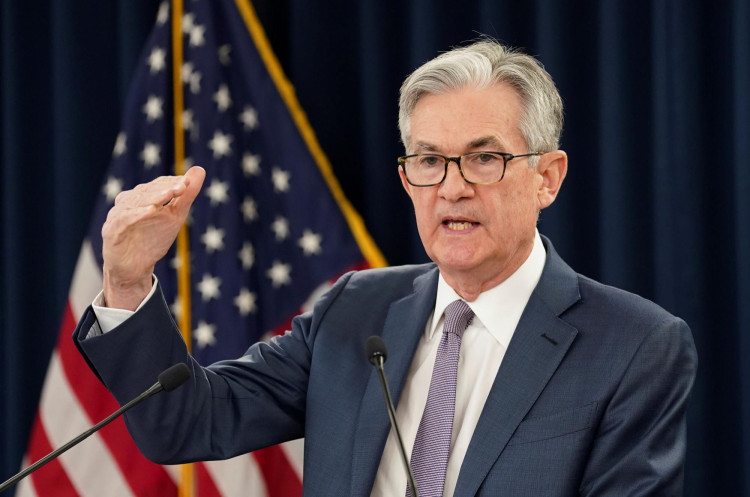U.S. stock futures edged higher after losses last week as investors weighed the comments from central bank Chairman Jerome Powell in a 60-minute interview that aired on Sunday night.
The Dow Jones Industrial futures soared 200 points, or 0.8 percent, while S&P 500 and Nasdaq Composite futures rallied 0.8 percent each.
Future contracts linked to major U.S. stock indices soared at the beginning of Sunday evening's overnight session as investors digested Powell 's views on the state of the American economy in light of last week's market losses.
Investors responded to states and cities which are gradually reactivating public life, amid a raft of grim results. Hopes for a fairly brisk recovery of the economy are counterbalancing statistics that have underscored how badly the coronavirus pandemic has crippled the American economy.
Powell said that the U.S. economy may take over a year to emerge in one piece from the pandemic-triggered global turmoil. "It is going to take a while for us to get back," he pointed out during an interview on CBS News' "60 Minutes" program, and as reported by Nick Timiraos and Timothy Puko via Dow Jones Newswires. The economy, Powell stated, will bounce back although the process could stretch through end of 2021.
In corporate developments, stakeholders will follow the latest update with struggling department store giant JC Penney Co. Inc. after the retailer filed for Chapter 11 bankruptcy late on Friday. JC Penney, along with other big retail firms, have been badly affected by shutdowns imposed by the government to reduce the spread of Covid-19.
The Federal Reserve director disclosed a rather positive message, saying in the television interview that he is very optimistic the US economy can weather the storm but cautioned it may not totally be revived until a vaccine for the coronavirus is mass produced.
Powell also divulged that he does not think the ongoing crisis will be the same as the Great Depression some nine decades ago despite the big chance the American jobless figure could rise around 25 percent.
Meanwhile, April retail sales plummeted at an unprecedented 16.4 percent rate - the worst ever read monthly and initially weighed on Wall Street stocks. Yet by the end of Friday's session, indices reversed as investors were betting on the eventual easing of stay-at-home orders that stifled the economy.
Government efforts to contain the spread of the disease have halted a good volume of business activity, creating a huge hole in economic growth. The jobless rate, which only three months ago hit near 50-year lows, and rose last month to its highest peak since the 1930s, erased years of employment advance in just 30 days.





